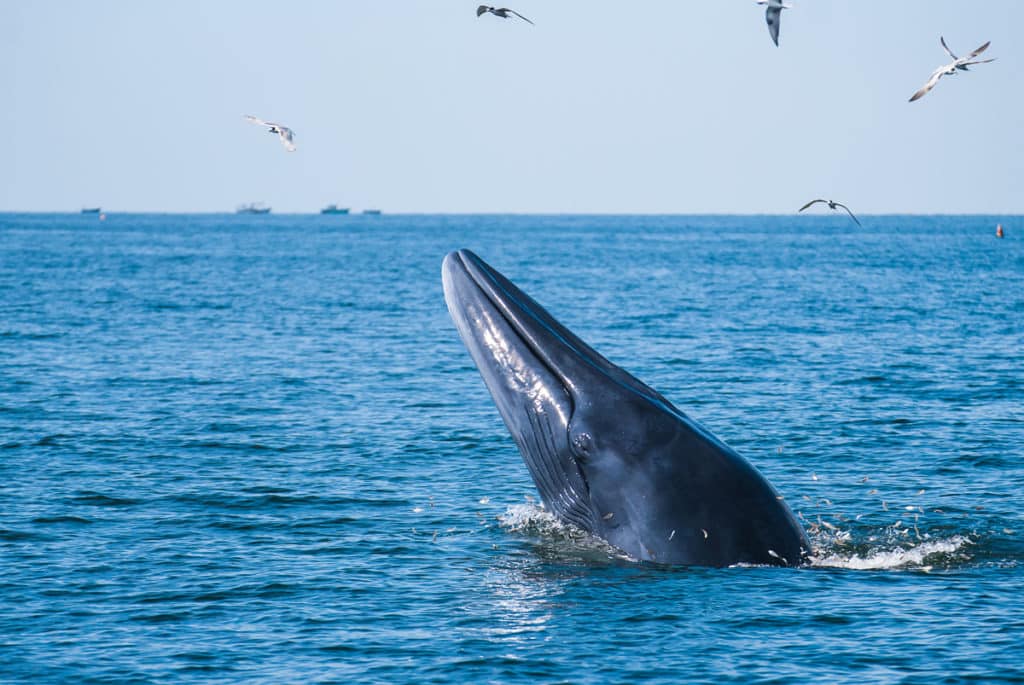Photo credits: Andreas Kay via flickr Australia is home to an array of remarkable reptiles. Among them, two geckos stand out - not just for their unique appearance and behaviour, but also for the growing threats they face. The ringed thin-tail gecko (Phyllurus caudiannulatus) and the Mount Elliot leaf-tailed gecko...
Japan, a long-time outlier on the global consensus against commercial whaling, overtly resumed killing whales for profit yesterday in defiance of a 33-year international moratorium that still remains in effect. Japan’s actions make it a pirate whaling nation, acting completely outside the rule of international law and at odds with the majority of nations who are agreed that commercial whaling needs to end.
On Sunday, the government of Japan formally left the International Whaling Commission, the international body that oversees whale conservation and whaling management. Today, the country launched its whaling fleet, announcing that it will take Bryde’s, sei and minke whales — the same three species it has been hunting under the guise of research for years — and will set its own quotas with no independent oversight of its actions.
Japan’s actions run contrary to the global movement to end commercial whaling — a movement that has made tremendous strides in recent years. Just last week, Iceland, which has frequently faced international criticism for continuing to kill whales, declared there will be no whaling in Icelandic waters this season. The IWC itself, once described as a “club for whalers,” has evolved over the years into a strong international body focused on addressing pressing threats to whales whose well-being is threatened by a number of factors, including ship strikes, climate change, bycatch, entanglement, marine debris and toxic pollution. Nation after nation has abandoned whaling, isolating Iceland, Japan and Norway as the only holdouts.

Japan whaled in the North Pacific and in Antarctica under the pretense of scientific research for decades, while simultaneously carrying out a long and well-funded campaign to undermine the global moratorium. At last year’s IWC meeting in Brazil, Japan threatened to leave the IWC. By following up on that threat now, Japan is not just thumbing its nose at other nations trying to work cooperatively to save the world’s great whales for future generations; it is also establishing a terrible precedent for other countries that might seek to follow its example.
Whaling is neither sustainable nor humane. As long-lived, slow breeding marine mammals, whales are extremely vulnerable to overexploitation, and there is no guaranteed humane way to kill a whale at sea.
Japan’s eagerness to resume commercial whaling is also perplexing, because the demand for whale meat in Japan has dropped significantly; its “research” whaling program has also lost money for years.
Whatever Japan’s reasons for reopening commercial whaling may be, one fact is for certain – it stands almost alone on this issue. In the 25 years I have been involved in efforts to ending commercial whaling, my colleagues at HSI and I have spent many hours listening to Japan defend its so-called research whaling and watching its representatives argue against the maintenance of the moratorium, only to see it repeatedly rebuffed by a majority of nations.
Last week, HSI with many other organizations and individuals wrote an open letter to the countries meeting in Japan for the G20 summit, calling upon Japan to desist from commercial whaling. Now, as Japan sets out to sea once again on a mission to destroy some of the most extraordinary animals on earth, we are marshaling our resources to counter its move and set the world on a true course of coming together to save our planet’s whales.
Kitty Block is President and CEO of the Humane Society of the United States and President of Humane Society International.
Header image: Australian Government | Wikimedia Commons


